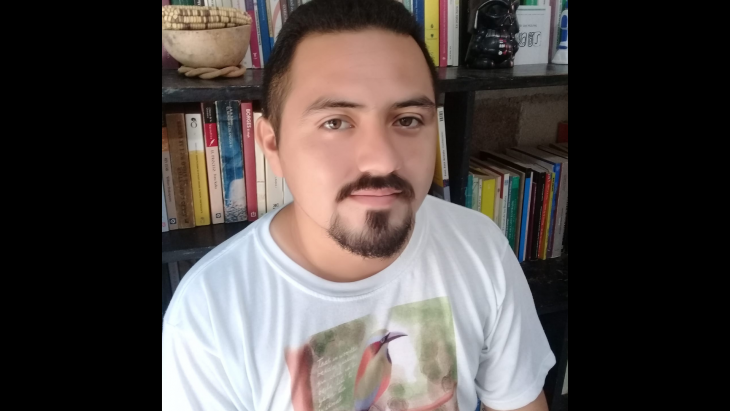Merida, Yucatan, (November 05, 2021).- James Assir Sarao Cauich thinks in Mayan first, then writes in Maya and, if necessary, translates it into Spanish or another language to communicate. When rapping in public, he evokes his ancestors, he remembers his grandparents and parents, who taught him “the mother tongue” in his town: Mocochá, Yucatán.
However, at first, he only spoke with them and other close people, he was ashamed of speaking the mother tongue outside of this environment. But through rap, he found a way to better express what he feels, but above all to feel more proud of his origins, to lose the fear, and not be ashamed of communicating in Maya.
For the artist, rap in Maya is a form of resistance, so that the language prevails and continues to live in the face of an increasingly bleak panorama. Although he is not specifically dedicated to music, in his songs he tries to express the social struggle and the complications suffered by the Maya people, especially the racism and discrimination that still prevail.
He has been dedicated to the promotion of rap in Maya for more than 10 years, has a degree in literature, speaker, currently a Maya teacher at the Autonomous University of Yucatán (UADY).
At one point in his life, James was in Cancun, Quintana Roo, where he had his first acquaintance with rap and FreeStyle; in his spare time, he would hang out with some colleagues to improvise, just for fun. At the age of 17, he returned to Mérida and then began a career in literature at the Faculty of Anthropological Sciences of the UADY.
Rap is poetry
Then, knowing a little more about the metrics and other details of writing, he began to write his own poems in Maya; then rework them. For him, writing rap is the same as writing poetry, since they are rhymes in Maya.
“Rap and poetry are similar, both share lyrics and complex forms of language through rhyme and certain rhythms”, he said.
One of the social problems among Maya speakers is that they do not speak the language because they fear being discriminated against, and thus, over time, the language fades. This happened with James, because despite knowing the language since he was a child, thinking in Maya, he did not speak it as much in other areas, or only in his community.
“To this day, I like to write in Maya and not in Spanish, I start in Maya, and if a translation is needed I passed it on to Spanish, but at the beginning, the whole idea arises in Maya; I like it better, I feel more comfortable, ” he says.
However, rap helped him understand that he should never feel ashamed of his language, but rather feel proud and make it known. Now he speaks and raps in Maya in front of several people.
In his songs, he addresses issues of social justice and denounces how the Mayas live, the violations of their human rights, the precarious conditions that the peoples live in, labor exploitation, school dropouts, as well as constant discrimination.
Rap as a form of resistance
As a Maya professor, James is aware that every day this language is dying, as just few people speak it. So, thanks to rap, music and the arts, this loss of speakers is compensated, many young people and children have found in Maya rap a way to feel safe speaking in their language, not to feel ashamed. “Rap is a form of resistance,” he says fearlessly.
“Rap can help them find a place and self-improvement,” he added.
Also, he adds, thanks to these artistic expressions, the people of the communities put aside their prejudices and stereotypes towards hip hop culture and pay more attention to the lyrics in Maya, understand them and reflect on their environment.
As an academic, he seeks to promote, through rap, poetry, or other art, the love for the Maya language, that people, young people, and children value it, appreciate it and that they are not ashamed of it, but see it as a privilege to know how to speak Maya and that this knowledge continues to be passed from generation to generation so that it does not become extinct.
Source: La Jornada Maya
TYT Newsroom


